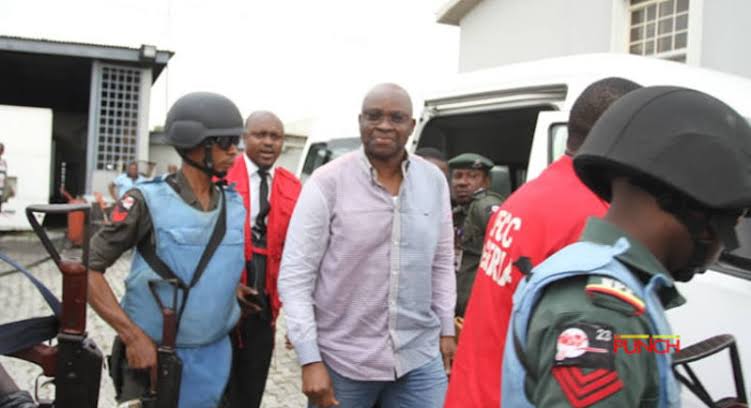Fayose’s acquittal in ₦6.9bn fraud case
EFCC vows to appeal
Summary
- Federal High Court acquits ex-Governor Fayose over lack of evidence
- EFCC says judgment will be challenged at the Court of Appeal
- Case highlights setbacks in high-profile anti-corruption prosecutions
Abuja, Nigeria — The Economic and Financial Crimes Commission (EFCC) has vowed to appeal the acquittal of former Ekiti State Governor, Ayodele Fayose, who was discharged on 16 July 2025 by the Federal High Court in Lagos after a seven-year legal battle over alleged money laundering and fraud totalling ₦6.9 billion.
Justice Chukwujekwu Aneke upheld Fayose’s no-case submission, ruling that the EFCC had failed to establish a prima facie case against him and his company, Spotless Investment Limited.
The court found the evidence, including witness testimony and documentary submissions, insufficient to proceed with a defence, particularly noting contradictions in the prosecution’s case and the failure to charge key figures like Abiodun Agbele, alleged to have been central to the transactions.
The EFCC, dissatisfied with the ruling, swiftly declared its intention to appeal the decision. In a statement issued by its Head of Media and Publicity, Dele Oyewale, the Commission stated it was studying the judgment and preparing grounds for an appeal at the Court of Appeal.
The Commission maintained its commitment to upholding the rule of law and prosecuting public officials suspected of abusing their office. Lead EFCC counsel, Rotimi Jacobs (SAN), also confirmed the legal team’s move to obtain a certified copy of the ruling to facilitate the appeal process.
Fayose, a prominent member of the opposition Peoples Democratic Party (PDP), was visibly emotional after the ruling, reportedly kneeling in gratitude and later celebrating with bricklayers over a meal of amala and ewedu. The acquittal marked a significant legal and political victory for the former governor, who was first arraigned in 2018 and re-arraigned in 2019 on amended charges.
The EFCC had accused Fayose of receiving ₦1.2 billion and $5 million in cash from former Minister of State for Defence, Musiliu Obanikoro, during his 2014 campaign, without going through financial institutions. It further alleged that he laundered funds through associates to acquire properties both within Nigeria and abroad.
Despite presenting testimony from key figures, including Obanikoro and EFCC investigator Abubakar Madaki, the court found the evidence largely circumstantial and lacking direct links to Fayose. The defence, led by Chief Kanu Agabi (SAN), argued that the prosecution failed to prove its case beyond reasonable doubt.
Fayose’s acquittal adds to a growing list of high-profile defeats for the EFCC in court, raising concerns about its investigative strategies and evidential standards. However, the agency’s determination to challenge the ruling signals a continuing effort to restore credibility and reinforce its anti-corruption mandate.
Legal analysts suggest the appeal could clarify judicial expectations for evidence in politically sensitive financial crime cases, especially those relying on circumstantial proof. The outcome of the EFCC’s appeal will be closely watched as it may set precedent for future prosecutions involving public office holders.







